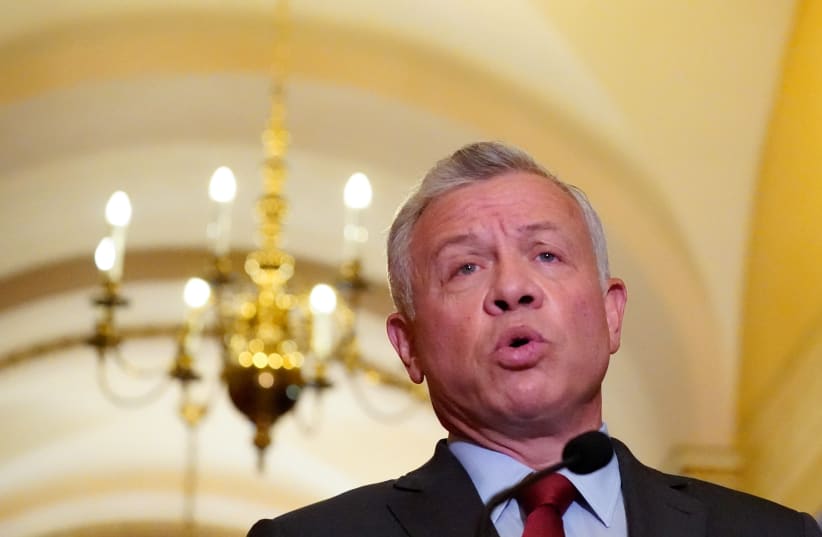Iranian-made drones and missiles have attacked Jordan in increasing numbers, King Abdullah told CNN on Sunday, as he described the dangers the Hashemite Kingdom and the region faces from the Islamic Republic.
"Unfortunately, Jordan has been attacked by drones that have come out that are Iranian signature that we have to deal with," Abdullah told CNN's Fareed Zakaria. He clarified that the drone attacks had taken place over the past year and had increased.
Abdullah listed a number of issues related to Iran, including the nuclear program, ballistic missile development, cyberattacks, and skirmishes along Jordan's borders.
Iran's "ballistic technology has improved dramatically. We've seen that, unfortunately, against American bases in Iraq. We've seen Saudi being the recipient of missiles out of Yemen. Israel from Syria and Lebanon, to an extent," the king said.
"What misses Israel sometimes lands in Jordan... Add to that [the] increased cyberattacks on many of our countries. The firefights on our borders have increased almost to the times when we were at the high end with Da'esh [ISIS]," Abdullah stated as he highlighted the dangers to his kingdom.
Israel, over the last years, has shot down a number of Iranian-made drones along its northern fronts and its border with Jordan, including during Operation Guardian of the Walls.
Israel has hit Iranian targets in Syria from the air and Damascus has often launched missile against the aircraft carrying out the attacks that have landed in Jordanian territory.
In the CNN interview, Abdullah was vague when asked if he supported the Biden administration's push to rejoin the 2015 Iran nuclear deal, known as the Joint Comprehensive Plan of Action. Talks in Vienna to reactivate the deal between Tehran and the six world powers – the US, Russia, China, Germany, France and the United Kingdom – have stalled although discussions are expected to resume only in August.
"There are legitimate concerns in our part of the world on a lot of portfolios that the Americans are hopefully going to be able to discuss with the Iranians," Abdullah said, adding that this included issues of specific concern for Jordan.
"The nuclear program affects Israel as it does the Gulf," said Abdullah.
Abdullah added, however, that he felt that the American and Iranian positions in the Vienna talks are "somewhat far apart."
The Jordanian king pointed to efforts by the United Arab Emirates Kuwait and Saudi Arabia, to engage with Iran in order to lower tensions.
"Let's hope that those talks get us to a better position where we can calm the region because we have so many challenges," Abdullah added.
The king spoke with CNN during his trip to the US in which he visited the White House last week and he became the first executive Middle Eastern leader to meet with US
Iraqi Prime Minister Mustafa al-Kadhimi is set to meet Biden on Monday and US and Israeli officials are working on scheduling a meeting soon between Biden and Prime Minister Naftali Bennett.
Omri Nahmias, Anna Ahronheim and Reuters contributed to this report.
